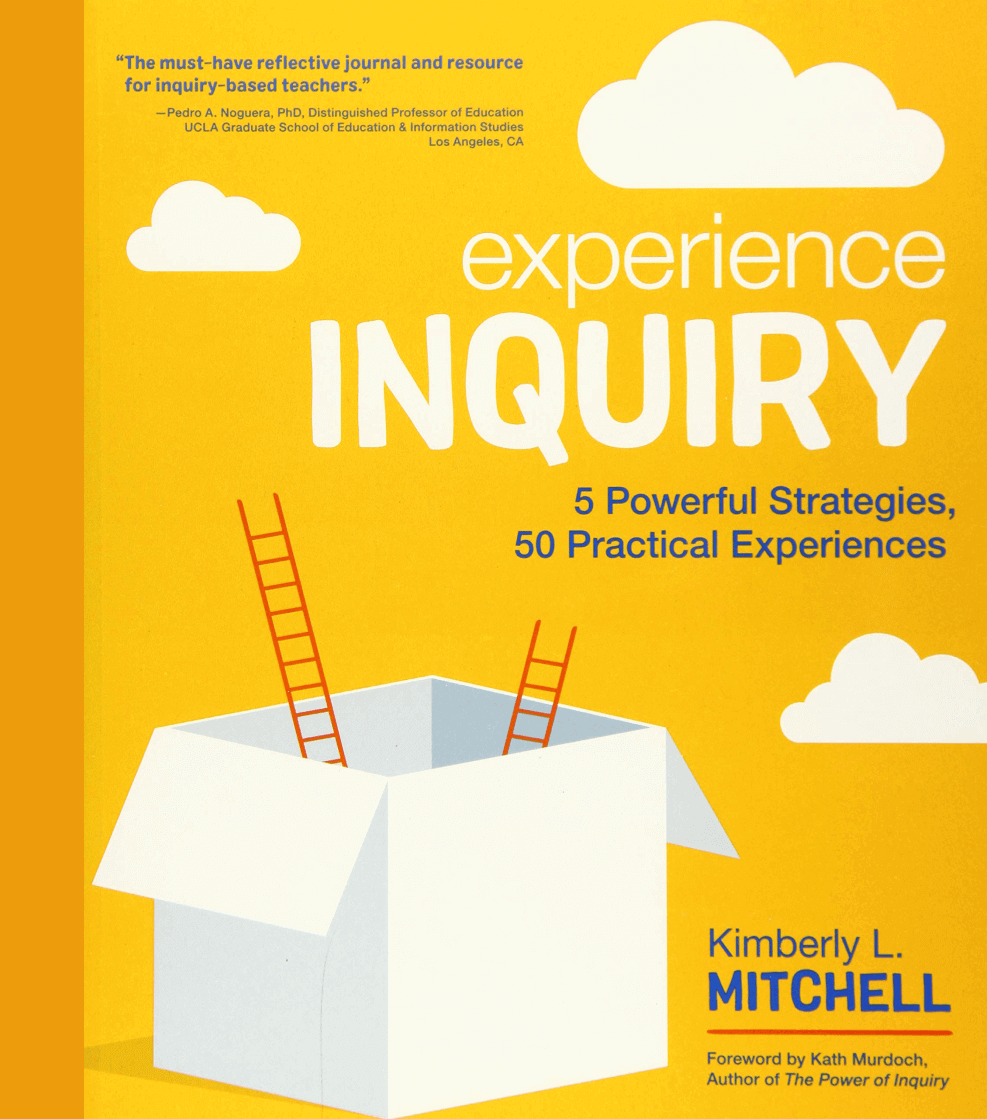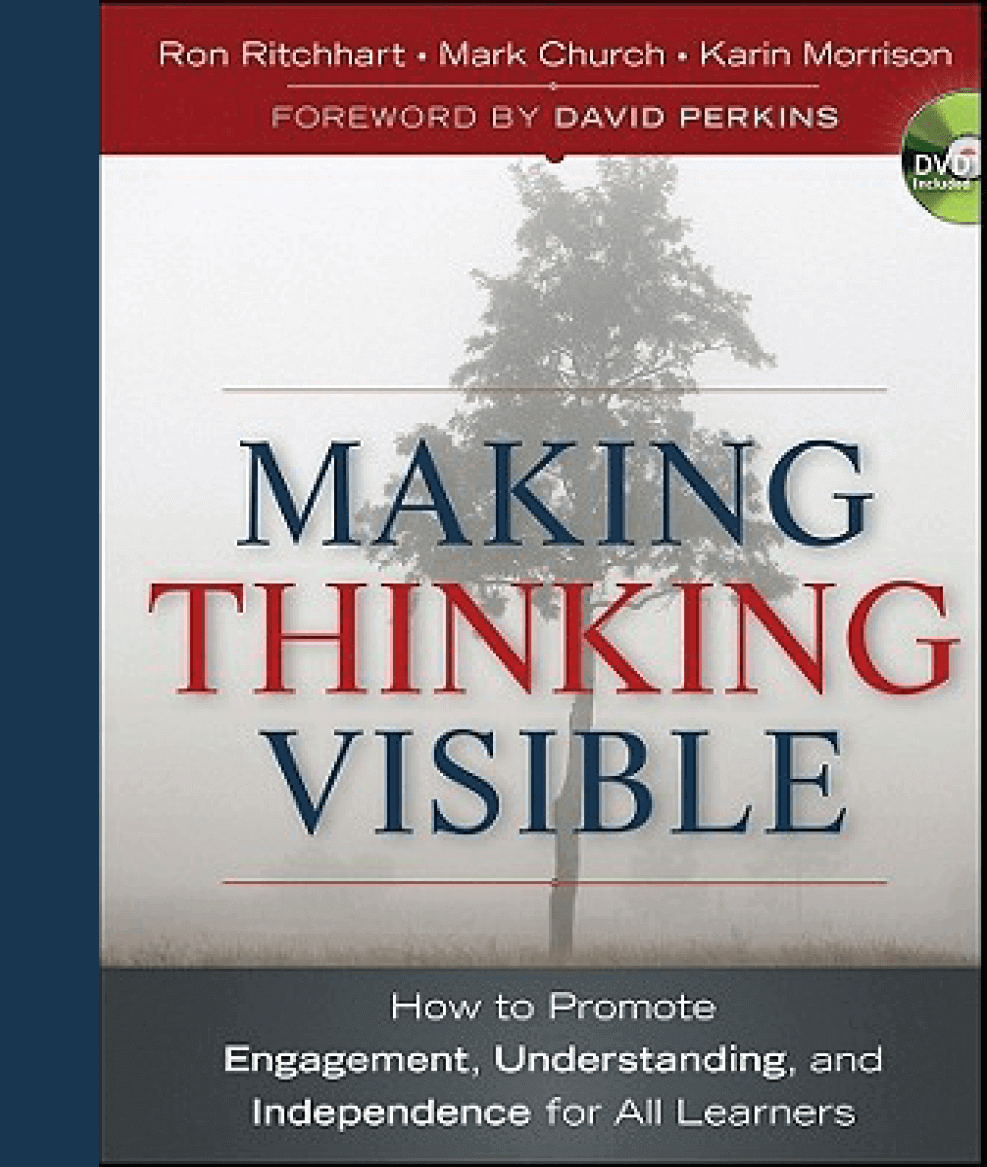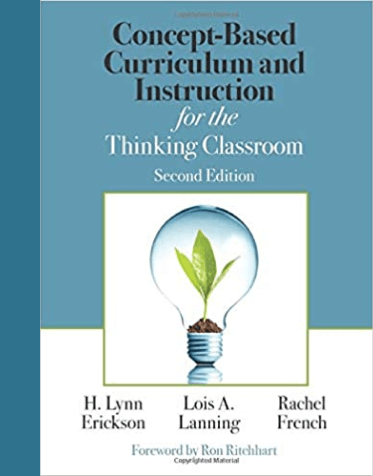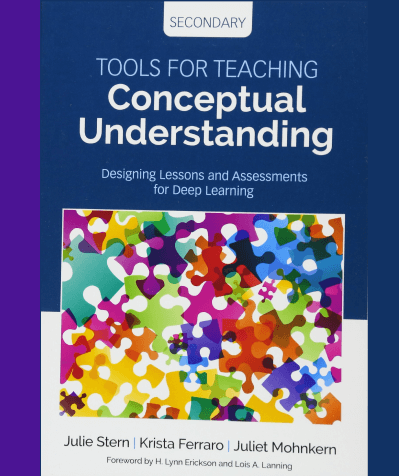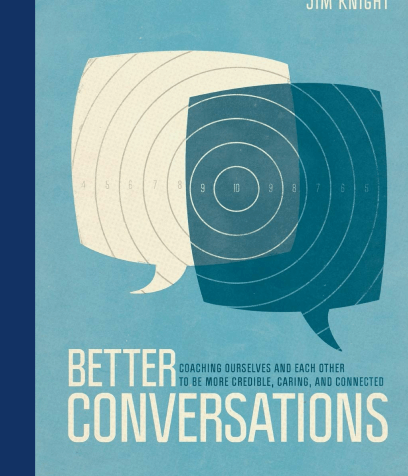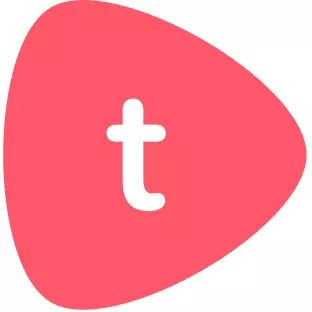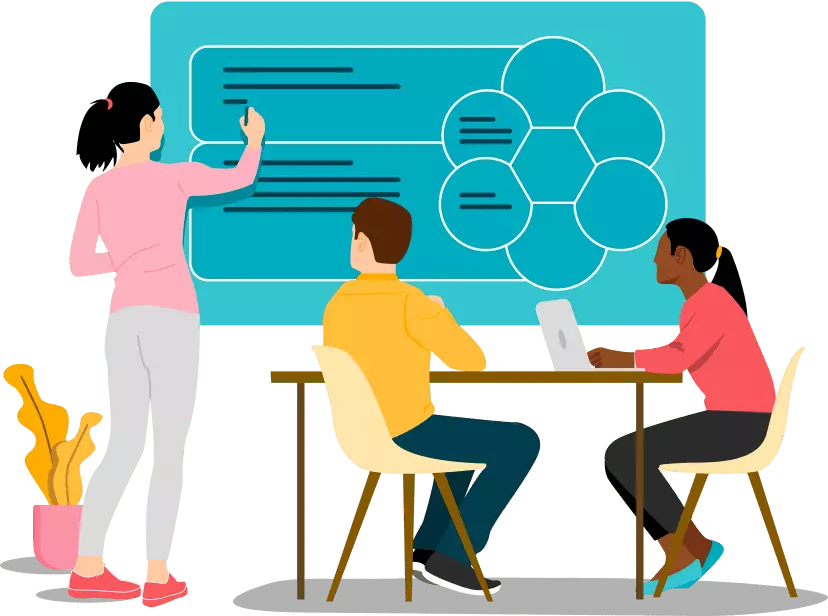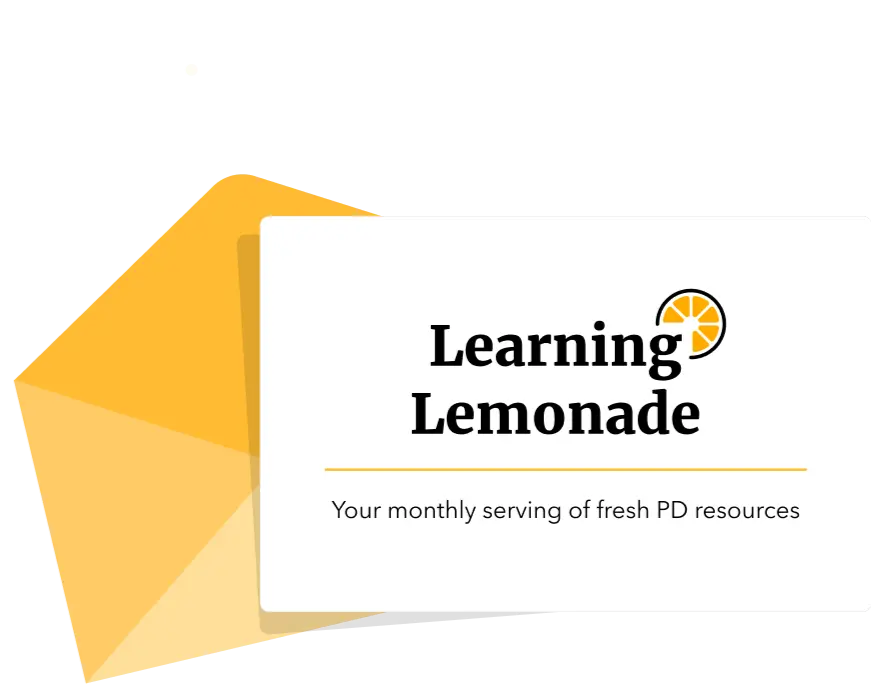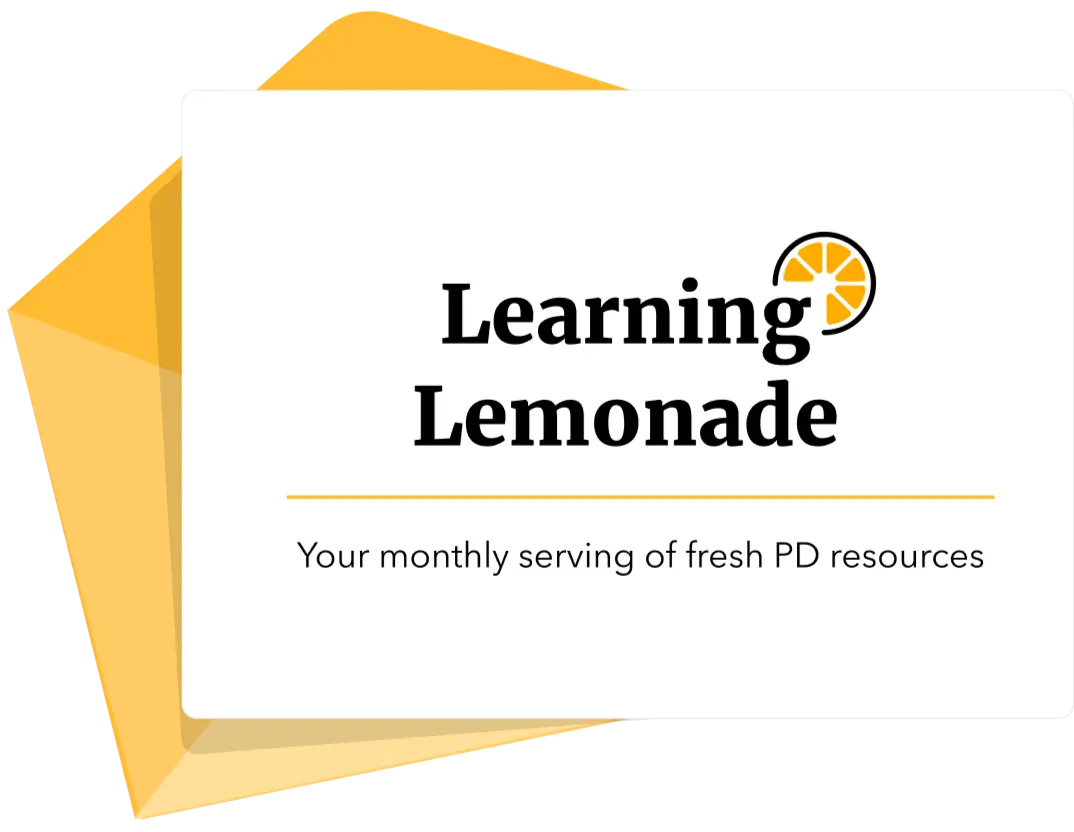Type your school name to search Canadian School British School of Chicago Scottville State School Henry Chadwick Primary School Frederica Academy - Saint Simons Island, GA St Matthews Lutheran School - Oconomowoc, WI Swanbourne Primary School St Mary School - Avilla, IN Futures School - West Hartford, CT Hope Christian School: Fidelis - Milwaukee, WI All God'S Children Christian School - Discovery Bay, CA Beresford Road Public School Manly State School, Manly, QLD West Hall High School HELP International School Narromine Public School Frankston Primary School Milton Gottesman Jewish Day School Of The Nation'S - Washington, DC Our Lady of the Sacred Heart Catholic Primary School, Springsure, QLD Ics Milan ( Ludum Srl) Youthinc. Enterprise Academy, Adelaide, SA Cotting School - Lexington, MA St Bernard's Catholic Primary School, Botany, NSW Lockyer District State High School, Gatton, QLD Oberlin Elementary School Eastwood Elementary Campus-Oberlin,Ohio Huntsville College Preparatory School - Huntsville, AL Taroona High School, Taroona, TAS Marshpoint Elementary School Bee Happy Bilingual School Group Middletons Early Learning Center - Laurelton, NY Marian Central Catholic High School - Woodstock, IL Rachels Place CEDAR GROWS COLLEGE Flying Start Vale of Glamorgan Blessed Sacrament Catholic School - Seminole, FL Gimnasio Británico Prarthana Chillingham Public School, Chillingham, NSW nelson college london C Leon King High School-Tampa,Florida Swan Hill Primary School Miina Härma Gümnaasium Westhill Institute Emirates National schools Al Mercy High School - Omaha, NE ILMA INTERNATIONAL GIRLS' SCHOOL Elisabeth Murdoch College, Langwarrin, VIC Promise Christian Preschool - Murrieta, CA Torah Academy Of Buffalo Grove - Buffalo Grove, IL Cedar Creek State School, Cedar Creek, QLD LYCEUM INTERNATIONAL SCHOOL - WATTALA garden genesis Heritage Christian Academy - Hopkinsville, KY Iona Presentation College - Primary Campus Haywood Christian Academy - Lake Junaluska, NC West Ghent School - Norfolk, VA Rock City Preparatory Christian School - Birmingham, AL The Children'S School At Stephens C - Columbia, MO Holy Cross Academy - Pittsburgh, PA Sarah & Irving Pitt Child Development Center - West Bloomfield, MI GRACELAND HIGH SCHOOL Richmond Secondary School-Richmond,British Columbia St Carlo Borromeo School Asquith Girls High School Austin Academy For Excellence/Garland High School BINUS Le Fevre Peninsula Primary School, Birkenhead, SA E Tipu E Rea Taraia Kohanga Reo British school Enko La Gaiete International School Sacred Heart Catholic School - Pinellas Park, FL Risdon Park Primary School Our Lady Star Of The Sea Elementary - Grosse Pointe Woods, MI Icn Noor Academy - Naperville, IL St Mary'S School - Worthington, MN Groupe Scolaire L'Ardoise Central Arkansas Montessori Inc. - North Little Rock, AR Faith Christian School of Distance Education Belvedere Spring School High Achievers Coach Educational Centre Gary K. Herberger Young Scholars Academy - Glendale, AZ Oakleigh Grammar, Oakleigh, VIC Mulberry School - Los Gatos, CA DAR EL TARBIAH ZAMALEK Coolbellup Community School, Coolbellup, WA Chilhowee Early Childhood Center Holy Family Catholic School - South Pasadena, CA Playhouse Coop School - West Orange, NJ Harbor Point Academy - Portsmouth, VA EL ALSSON NEW GIZA Deniliquin Christian School, Deniliquin, NSW Rose Park Primary School, Rose Park, SA Les Enfants Montessori School - Astoria, NY St Aloysius' College Holy Ghost School - Chippewa Falls, WI Country Hills Montessori - Farmington Hills, MI UNIS Care R Us Serei Christopher Elementary School Pedro1 De Aragon Peter Lalor Secondary College, Lalor, VIC ST THOMAS CATHOLIC INTERNATIONAL COLLEGE Sandy Strait State School, Urangan, QLD Cheder Tiferes Yisroel - Lakewood, NJ West Balcatta Primary School Bulimba State School, Bulimba, QLD Bay Ridge Christian Academy - Brooklyn, NY Leaf Springs School At Three Chopt - Henrico, VA Presbyterian Christian School - Hattiesburg, MS Brentwood Middle School Still Creek Christian Academy - Bryan, TX Robertstown Primary School, Robertstown, SA Yew Wah School of Shanghai Changning, Lingang Campus Minto Public School, Minto, NSW Rmeileh high School Bishop David Motiuk School Logos Academy - York, PA Archbishop Mccarthy High School - Southwest Ranches, FL manav rachna The Stonehaven School - Marietta, GA Bolton point child care centre Riverstone Public School St John The Baptist School - Smithton, IL Charlotte Brookson Academy for the Performing Arts Rio Rico High School New Vision Christian School - White Pine, TN Cardinal Newman High School - West Palm Beach, FL Tunas Bangsa School Our Lady Of Victory - Northville, MI Nesbru videregående skole Indian School Wadi Kabir Cambridge International, Muscat Portage Central High School Emmaus Catholic School Ryan Global School Andheri Mumbai Boggabilla Central School, Boggabilla, NSW Monarch Bay Montessori Academy - Dana Point, CA Kids & Krafts Playstart Eddystone Primary School, Heathridge, WA Highgate Wood School St Catherine's School, Moorabbin, VIC Weddington HIlls Elementary O'Connor Cooperative School Pottsville Beach Public School, Pottsville, NSW Canadian school of Florence Madison International School Country Mérida Verde Valley School - Sedona, AZ Autism Services - Amherst, NY Seneca Academy-Darnestown,MD AXIS The Quest Academy - Coloma Trust Lutheran High School Of Greater New Orleans - Metairie, LA The Discovery Center School - Redwood City, CA St Mark Lutheran School - Eau Claire, WI Gulf Coast High School Blenheim State School, Blenheim, QLD Iep Cristo Redentor Torquay P-6 College, Torquay, VIC Private Tutor Keystone Academy St Francis De Sales Cathedral School - Houma, LA Hatton Vale State School Transfiguration Upper And Lower Campus - New York, NY Mizzentop Day School - Pawling, NY Tidewater Classical Academy - Virginia Beach, VA Bethany Baptist Elementary - Long Beach, CA Tucker Maxon School - Portland, OR Spanish Schoolhouse - Allen, TX Horizons-On-The-Hudson Magnet School Montessori Greenhouse Schools - Los Alamitos, CA International School of Verona, Aleardo Aleardi Greater Shepparton Secondary College Pumahue Chicureo Chestnut Ridge Academy & Satellite School - Fayetteville, TN St. Georges College North College Row School, South Bunbury, WA International school Ho Chị Minh city D Y PATIL INTERNATIONAL Hope Center - Denver, CO American international School West Rankins Springs Public School, Rankins Springs, NSW Greenhouse Montessori School - Visalia, CA Charles Darwin University Preschool/Brookes Moscow San Gabriele Cross Of Glory Lutheran School - Washington Township, MI Federal State School, Federal, QLD Archbishop Mitty High School - San Jose, CA Alpha House Nursery & Kindergarten - Philadelphia, PA Nova City Premier School Montessori Academy Of Ed Inc- Dba Montessori Acad - Rancho Cucamonga, CA New Grace Center, Inc. - Brooklyn, NY Lindsay Thurber Comprehensive High School-Red Deer,Alberta Global Indian International School Pte Ltd, Cheviot Hill, Singapore Dalmain Primary School St Bernadette Elementary School - Westlake, OH Doubleview Primary School Chapel Nursery St Lawrence Primary School Aqaba International School Lehman Catholic High School - Sidney, OH St John's School, Euroa, VIC Highland Rim Academy - Cookeville, TN ECE/Beacon School Youngtown Primary School Marra Creek Public School, Nyngan, NSW Nungurner Primary School North Fremantle Primary School, North Fremantle, WA Bess Streeter Aldrich Elementary Global jaya school Jones Hill State School, Jones Hill, QLD Calgary Board of Education The Goddard School - Concord Twp, OH British Educational Schools Rockport School Christian Victory Academy - Orlando, FL Slavic Christian Academy - Vancouver, WA Amelia Earhart Elementary Yea High School-Goldsworthy Road Campus Winton Primary School, Winton, VIC XIAN GAOXIN NO.1 MIDDLE SCHOOL manchester academy Valley View - Middlefield, OH St Francis Methodist School elonera Mapuru Yirralka College, Mapuru, NT Kolej Tuanku Ja'afar St William's Primary School Service Canada a School Porter-Gaud School - Charleston, SC Community Transitional School - Portland, OR Our Lady of the Southern Cross Radhwa international school Yanbu Lauderhill Community Child Care Center - Lauderhill, FL Collège Notre-Longueuil,Quebec North Lakes State College, North Lakes, QLD Old Palace Of John Whitgift School Wesley International School Winter Haven Christian School - Winter Haven, FL Georgetown Hill Early School - Montgomery Village, MD Holy Family Catholic School, Parafield Gardens, SA Pleasant Valley - Middlefield, OH ICS Kindergarten Gresford Public School Maimonides Hebrew Day School - Fort Myers, FL Academy PS NU Hill Country Christian School Of Austin - Austin, TX Early Childhood Development Center ACS Egham International school Bayview Secondary College, Rokeby, TAS Mayco School of English Scarborough Public School Rolling Ridge School - Delta, PA Our Lady's Assumption School, Dianella, WA Wulguru State School, Wulguru, QLD Catholic Central High School - Troy, NY Eastern Mennonite School - Harrisonburg, VA Sharjah education Academy Riverfield Country Day School - Tulsa, OK Etz Chaim Boys School Cheviot Kids Lauro ikastola St Rose Of Lima School - Cuba City, WI Axon Children's Centre Billabong High International College Boarding House Maranatha Baptist Christian School - El Dorado, AR Redeemer Childhood Learning Center - Cisco, TX St Charles Elementery School - Genoa, WI Rye Park Public School, Rye Park, NSW Holy Spirit Infants School Heyfield Primary School, Heyfield, VIC Cleveland Heights High School Childhelp School - Beaumont, CA Imaginarium Learning Center The - Kingsburg, CA Smithton High School Islamic Educational College-Al Jubeiha Harrogate Ladies' College St Pius School - Southgate, MI St Marys Episcopal Day School - Bellville, TX St Jakobi Lutheran School, Lyndoch, SA Druid Hills High School Christ The King School - Rutland, VT Jackson Preparatory School - Flowood, MS Lab School of Washington Bishop David Brown - A Specialist School For The Performing Arts Macquarie Fields Public School, Macquarie Fields, NSW Resurrection House Sunflower Nursery Australian Islamic College (Thornlie), Thornlie, WA AIS Kuwait Capertee Public School Black Elk Elementary-Omaha,Nebraska St Matthew Cathedral School - South Bend, IN Jandakot Primary School St Augustine Catholic School - Washington, DC Ovell'S Chrisitian Academy - Winter Haven, FL Warialda High School, Warialda, NSW PYP Aoba Japan Bilingual Preschool Bundarra Primary School Waikerie Primary School Castile Christian Academy - Castile, NY Queensland Pathways State College - Bracken Ridge Campus Bendigo Special Developmental School, Kangaroo Flat, VIC Maple Village Waldorf School - Long Beach, CA Lincoln Elementary School-Adrian,Michigan primary school of Aphidnes Divine Savior Catholic School - Fredonia, WI Sugar Grove School - Westby, WI Western Canada High School-Calgary,Alberta AMSB Beaumont Hills Public School Coastal Middle School-Savannah,Mississippi 8 years/Al-Rayan International School Rio Grande Baptist Academy - Rio Grande, NJ Deepwater Public School Rascals Day Nursery Dromana Secondary College, Dromana, VIC Wyldewood Christian School - Oshkosh, WI Bakers Hill Primary School, Bakers Hill, WA Living Word Christian Center Kingdom Academy - Mobile, AL Summit School District William Stukeley Primary School Tecnológico de Monterrey - Campus Santa Fe Federal Hill Prep Thandimfundo Schools Silverdale School Temple Christian School - Dayton, OH Tarr Academy Angaston Primary School Merrimac State School, Merrimac, QLD Philly Agile Learning Community School - Philadelphia, PA Ardmona Primary School St Clare's Catholic Primary School, Narellan Vale, NSW Holland Park State High School Chadwick International Ecopark St Edward School - Waterloo, IA Peninsula Adventist School - Seaside, CA Traralgon South Primary School Carden Academy Of Maui - Makawao, HI Mckinney Byrd Academy Inc. - Shreveport, LA anglocolombiano Lake Ridge Academy - North Ridgeville, OH Siena Catholic College, Sippy Downs, QLD St Joseph's Primary School, Bombala, NSW Mount Isa Special School, Pioneer, QLD The Highlands School - Bel Air, MD Southern Preparatory Academy - Camp Hill, AL Our Lady of Mount Carmel Parish School, Pennington, SA Nobby State School, Nobby, QLD Brtish International School Of Charlotte - Charlotte, NC Haileybury Newlands ELC Camelback Desert School - Scottsdale, AZ Thinking Child Christian Academy - Homestead, FL Dulwich College Seoul St Marys Senior High School Cherry Tree Foundation Montessori Of Ladera Ranch - Ladera Ranch, CA JRLF - Senior School, Bridgewater, TAS Manglerud Skole Coram Deo Academy - Carmel, IN Woodleigh School Penbank. Campus Ashwicke Hall School Wodonga Middle Years College-Felltimber Campus Chilton Christian Academy - Jemison, AL Michelangelo International Elementary School South Bunbury Primary School, South Bunbury, WA Acted Mannum Community College, Mannum, SA Dbegotin Educational Foundation Dorchester Academy - Saint George, SC Harbor Point Behavior Health Center - Portsmouth, VA Shady Side Academy Junior School - Pittsburgh, PA Our Lady Of Grace Catholic School - Pleasanton, TX Wandin Yallock Primary School Richmond Hill State School, Richmond Hill, QLD Springhall British School Campion School Teikyo University Kani High School St Mark's College École secondaire JeanneMance-Montréal,Quebec ENKA SCHOOLS Strathcona-Tweedsmuir School 13 The Ark Kindergarten and Junior School Golden Horizon Academy - Cutler Bay - Cutler Bay, FL san Ignacio de recalde Longmont Christian School - Longmont, CO Silver Spruce Montessori School - Grafton, MA Atherton State School Beechwood School-Fullerton,California Bilingual International School of Paris UCSI International School Subang Jaya Arqam'S Academy - St Petersburg, FL Strong John Thomson Elementary School St Joseph's Catholic Primary School, Park Avenue, QLD Bajool State School CORONA SECONDARY SCHOOL Crawford International Bedfordview TOWER OF IVORY SCHOOLS EDIENE-ABAK ABAK John A. Ferguson Senior High School-Miami,Florida Mesilas Bais Yaakov - Brooklyn, NY Knutsford Academy Main Line Reform ECE Bamby'S Day Care Center - Miami, FL Southern Vales Christian College - Morphett Vale Campus Orbix International School Muar Bright Academy-Frisco,Texas New Lambton Public School Changing Hearts Boarding School - Marshall, NC Divine Providence Academy - Conklin, MI Faith Academy -Buford - Buford, GA Kindai University High School Seven Rivers Christian School - Lecanto, FL Cascade Christian -Junior High/High School - Puyallup, WA Maple bear Newport Lakes Primary School, Newport, VIC Pendle Hill Public School Christ Elementary School - Lincoln, NE Broadford Primary School, Broadford, VIC THE CONCORD SCHOOL, IBADAN The Samworth Church Academy The Island school of Cyprus St Clare's College, Griffith, ACT RYSLINGE EFTERSKOLE international School of Milan St Andrews Streaky Bay Area School Bais Menachem Yeshiva Day School - San Francisco, CA Orange Anglican Grammar School, Orange, NSW Kairi State School, Kairi, QLD Basket Range Primary School Victory Christian College Upper Yarra Secondary College Autism spectrum australia The Waldorf School Of Dupage - Warrenville, IL Grant High School, Mount Gambier, SA Foothill Country Day School - Claremont, CA OneSchool Global Vic Community Child Guidance Clinic - Manchester, CT Babakin Primary School Gerringong Public School, Gerringong, NSW Tri-City Adventist School - Pasco, WA Yarrilee State School, Urraween, QLD Kerry Street Community School, Hamilton Hill, WA Ormeau State School, Pimpama, QLD Holy Trinity School Academy Trust Wonga Park Primary School Commission scolaire des chemin-du-roy Shirakatsy Lyceum Bryn Athyn Church School - Bryn Athyn, PA Holmer Green Senior School Sabs Countesthorpe Academy IIS Genovesi Da Vinci Trilok School St Mary of the Angels College, Nathalia, VIC Joyful Sound Christian Academy - Porter, TX Christ The Teacher Catholic School - Yakima, WA Sir John Nelthorpe School The Hall State School, Wandal, QLD Escola da A.P.E.L. Seeds of Grace The Titus School - New York, NY Future World School DHA Lahore Crawford Academy Of Holy Angels - Richfield, MN Meadowridge School-Maple Ridge,British Columbia E.K. Powe Westside Christian College - Alice St Campus INLET GROVE COMMUNITY HIGH SCHOOL-West Palm Beach,FL Firm Foundation Christian School - Battle Ground, WA Discovery Primary South Leeper School C/O John Petersheim - Fredericksburg, OH Kilkivan State School Bucks Run Amish School - Reynoldsville, PA ATLANTIC HALL EDUCATIONAL TRUST COUNCIL Wooranna Park Primary School Playful Partners Consultancy Tathra Public School Yanchep Secondary College St Michael Catholic School - Snohomish, WA The Saint John Henry Newman Catholic School International German School Ho Chi Minh City (IGS) Manarah Islamic Academy - Whitehall, PA Tec Education Center - Washington, PA Dr. G. W. Williams S. S. Najd National Schools Whitehouse Preparatory School - Whitehouse Station, NJ Princeton Day School - Princeton, NJ Heathcote East Public School Berwick Fields Primary School, Berwick, VIC Amoonguna School erudio international school Calderwood Lodge Nyrsery Trinity Lutheran School - Athens, WI Pine Ridge Middle School Isikkent Newman Catholic Schools - Wausau, WI Carrollton High School Five Islands School, Booragul, NSW Canyon Christian Academy - Alamogordo, NM Vanke School Pudong St Albans Secondary College-Strathbogie Camp Alphington Grammar School Edge Hill State School Temple Christian Academy - Jacksonville, FL Innisfail East State School, East Innisfail, QLD cph cja Faith Christian School - Dallas, OR Bradenton Christian School - Bradenton, FL Arab international academy Laingsburg Christian School - Laingsburg, MI St Ignatius Loyola School - Marthasville, MO Mount Mee State School, Mount Mee, QLD Maya Schools Antalya Wakas Elementary School Way Of Wisdom Academy - Orlando, FL Dubois Area Catholic Elementary School - Du Bois, PA st luke school Husky Prep Academy Inc - Davenport, FL Radhwa International School Yanbu KSA Mel Maria Catholic Primary School - St Joseph Pignatelli Campus NDIS Baldivis Gardens Primary School South Baldwin Christian Academy - Gulf Shores, AL Echline St James Elementary School - Waynesburg, OH Gledswood Hills Public School Apple Orchard School - Brookline, MA Stretton State College, Stretton, QLD Woolooga State School, Woolooga, QLD Heathmont College, Heathmont, VIC Texoma Christian School - Sherman, TX The Holmesdale School Growing Treasures Learning Center #2 - Hialeah, FL Reno Christian Fellowship Preschool And Ministry - Reno, NV Mount Clear College, Mount Clear, VIC Moree Christian School, Moree, NSW Islamic School of Canberra, Weston, ACT Ittihad Pakistan Int. Sch. Jeddah - Eng. Section Wangi Wangi Public School, Wangi Wangi, NSW Glebe Public School Maarif Education Inter-community School Zurich National Institute of Education Beechboro Christian School Indian School Muscat Central Bedfordshire UTC Mother Of God School - Gaithersburg, MD St Pius V School - Chicago, IL Greta Public School, Greta, NSW International School of Western Australia, City Beach, WA Bowral Public School, Bowral, NSW Lompoc Valley Baptist School - Lompoc, CA Bais Sarah Inc - Lakewood, NJ St Joseph's Catholic College, Aberdeen, NSW Chapel Hill Christian School (South Campus) - Akron, OH Storman Lions Leadership Academy - Saint Louis, MO The Blake School Of Plantation - Plantation, FL Looking Glass Riverfront School & Career Center - Eugene, OR Bonita Springs High School Gowrie State School, Gowrie Junction, QLD Catholic College Sale Central Lutheran School - New Haven, IN Queensbury High School St Joseph Interparochial School - Bowling Green, KY Grove Park Elementary Ewing Adventist Junior Academy - Bonnerdale, AR Yew Wah International Education School Tongxiang Tromsø International School Chulmleigh Community College Ascot Park Primary School Bishop Patrick V Ahern High School - Staten Island, NY Future Scholars Early Learning Center - Hainesport, NJ Jefferson Parochial Amish School - Geneva, IN Sd Kristen Yahya Good Shepherd Childrens Center - Old Bridge, NJ Fusion Academy Slk: Southlake - Southlake, TX St Catherine of Siena School Trinity Lutheran School - Delray Beach, FL Banyan Park Preschool Bethel Mennonite School - Gladys, VA Webb School of Knoxville Doughty Valley School - Baltic, OH kinderfield and highfield school bogor St Joseph School K-12 - Plaucheville, LA Yeniyol Schools ABA international school Oman The Living Water School - Alexandria, VA Singapore School Medan Bredbo Public School, Bredbo, NSW Lutheran High School Of St Charles County - Saint Peters, MO Carranballac P-9 College, Point Cook, VIC Walkamin State School Burlington Infants & Nursery School Newcastle High School for Girls Institute of Early Childhood Education and Development Spojená škola Pankúchova 6 SMA Islam Al Azhar Thangool State School Vineyard Montessori School - Vineyard Haven, MA Range View Elementary School foundation Public School Soloquest School And Learning Center - Sonoma, CA Eulo State School Tiferes High School Thorp Mennonite School - Thorp, WI Yeshivah College The International School Of Amsterdam Abundant Life Christian School - Albuquerque, NM Renaissance Charter School at Wellington Nesibe Aydin Educational Instutitions (Ankara) Hurst Lodge School SAGU Foundation Olive Crest Academy - North - Garden Grove, CA Rusd Queensland Catholic Education Commission Lamb Of God Ev Lutheran School - West Allis, WI sacred heart cathedral school Shenzhen Senior High School Country Village Montessori School - Amherst, NH Glenreagh Public School CCE Suffolk Little Farmers Preschool The San Miguel School - Providence, RI Boggabri Public School Mesivta Yesodei Yisroel - Elkins Park, PA Redhead Public School, Redhead, NSW Evergreen Center - Milford, MA School-gymnasium #153 children international school Home Away Home Academy - Aberdeen, NJ Scottish High International School St John'S Lutheran School - Napa, CA Launching Place Primary School, Launching Place, VIC Puddleducks Reynella South Primary School, Reynella, SA Uplift Ascend-Fort Worth,Texas Sand Hill School - Sugarcreek, OH South East Amish School - Geneva, IN Aggeneys International Academy springfield KIPP University Prep Eastside Christian School - Grand Rapids, MI colegio europeo Madrid Scotch College - Torrens Park Campus International school of Toulouse British School of Lomé Cairns State High School, Cairns North, QLD Mount Zaagkam School Mother Franciska Elementary School - Staten Island, NY Mrs. Os At Agape - Lubbock, TX Venture Christian School - Corpus Christi, TX Pilgrim Lutheran School - Wauwatosa, WI St Catharine Of Siena School - Cincinnati, OH West Boca Raton Community High School Mysticland in school Cairnlea Park Primary School-Western Special Assistance Unit - Language Shield Institute Of Flushing - Flushing, NY St Patricks Catholic School - Arroyo Grande, CA Maddingley Montessori Centre Madora Bay Primary School Primrose School At Reunion - Commerce City, CO Al Wafaa School Passage Christian Academy - Gainesville, FL Frisco Elementary-Frisco,Colorado Ivs Wilton Christian School - Wilton, CA Nemingha Public School, Nemingha, NSW Athelstone School, Athelstone, SA Nord Anglia Chinese International School (NACIS) The Benaja Christian Academy - Reidsville, NC St George State High School, St George, QLD Enfield Public School, Enfield, NSW Embley Mount Rogers Primary School Rose Manor International School My 1St College Lc - Homestead, FL Limai Montessori Academy - Buena Park - Buena Park, CA Bayside Adventist Christian School - Hayward, CA Asquith Girls High School, Asquith, NSW Port Macquarie Public School, Port Macquarie, NSW Yeshiva Ketana Toras Chaim - Chestnut Ridge, NY Fusion Charlotte - Charlotte, NC Balaclava State School Northview Middle School-Indianapolis,Indiana Circle Of Children Developmental Kindergarten - Los Angeles, CA Morisset Public School Oakwood Christian School - Anderson, SC Metropolotan International School Lancaster Primary School, Lancaster, VIC Torsbergsgymnasiet Rivermont School - Tidewater - Virginia Beach, VA Alpurrurulam School Tiddlywinks Day Nursery Pitsford School LMEP Westside Christian School - Sioux Falls, SD St Patrick'S School - Rockville, MD Brightwaters Christian College Merivale High School-Ottawa,Ontario Auburn North Public School, Auburn, NSW École Internationale Du Village Thorley Day Nursery Immanuel Evangelical Lutheran School - Alliance, NE Timbarra P-9 College, Berwick, VIC Queenscliff Primary School Christ Lutheran School - Eagle River, WI Medbury School Patrick Henry High School-Minneapolis,Minnesota Childrens School At St Johns - Bala Cynwyd, PA The International School at Mesa del Sol Zion Christian - Millersburg, OH Corpus Christi School - Chambersburg, PA LICEO SOROLLA Nanjing Gemdale Future School BPK PENABUR Jakarta Illawarra Sports High School, Berkeley, NSW Mueller College, Rothwell, QLD Mooltripakdee International School Albion Park High School Trinity Lutheran School - Wellsboro, PA Bullarah Public School, Bullarah, NSW De La Salle Catholic College, Caringbah OKI INTERNATIONAL SCHOOL Mount Scopus Memorial College - Gandel Besen House Campus Court Street Academy - Portsmouth, VA Altona North Primary School, Altona North, VIC Holy Eucharist School, St Albans South, VIC St Lawrence High School Bucks Learning Academy - Warrington, PA Red Cliffs East Primary Jubilee Christian College, Atherton, QLD Kradwell School - Wauwatosa, WI Mountain Shadows Montessori School - Boulder, CO St John'S Lutheran School - Pardeeville, WI Lyndhurst Secondary College, Cranbourne, VIC St Patrick's Technical College, Edinburgh North, SA Temple Christian College - Bethany Campus Ourimbah Public School, Ourimbah, NSW Amritha International Mount Gravatt State School Integrity Care Remedial And Diagnostic Center. Bath Academy Gold Coast Christian School - Coos Bay, OR Colegio Lestonnac Barcelona The Webb School - Bell Buckle, TN Jabiru Community College, Zillmere, QLD Aurora Southern Highlands Steiner School, Bowral, NSW First Flint Sda School - Flint, MI Bishop Maginn High School - Albany, NY Grace Christian School - Blacklick, OH Astley High School Shiloh Institute Of Learning - Jacksonville, NC Lakemba Public School, Lakemba, NSW Royal Xavier International College Australind Primary School Harkham Hillel Hebrew Academy - Beverly Hills, CA Joliet Montessori School - Crest Hill, IL Aga Khan Academy Meadowbrook School - Dallas, TX Bishop Heelan Catholic Schools - Sioux City, IA Heathmont East Primary School, Heathmont, VIC Peace Lutheran Primary School U.E. Celleri Montessori Academy Of Glasgow - Glasgow, KY AWAEL ALMAMLAKAH INT'L SCHOOL (BOYS) GEMS Académie d'Alexandrie Wynnum State School Colegio CEU Jesús María Alicante Hamilton State School John Calvin Christian College Arusha Meru International School Mitchelton Special School, Mitchelton, QLD Holy Family Catholic School - Dale City, VA Launching Place Primary School University of Sussex St Joseph Catholic School - Palm Bay, FL Roots Ivy International School - Faisalabad Paxton Minyip Primary School Hautlieu School Captain Gilmer Christian School - Fletcher, NC Cooma North Public School Worthing High School-Houston,Texas SEDA College NT - Waratah Club campus Vidyanjali International School St Anne Elementary School - San Francisco, CA Land Of Learning Academy - Tampa, FL Gateway Montessori School - Chicago, IL SD Islam Al Azhar 11 Ashford Central School Nganambala School, Peppimenarti, NT San Juan Montessori School - Anacortes, WA Buxton School, Secondary Phase The Croft School Pantego Christian Academy - Arlington Campus - Arlington, TX Merriwa Primary School Our Father'S Lutheran School - Greenfield, WI Hope Christian Academy - Dickinson, ND Karabar High School, Queanbeyan, NSW Trinity Grammar School, Kew Brilliant Minds Early Learning Academy - Mulberry, FL Cakir Schools Whispering Pines Christian School - Plymouth, CA Shanghai High School INTERNACIONAL ARAVACA Northern School For Autism, Reservoir, VIC St Clare's Catholic School, Burdell, QLD Temple Emanu-El Dallas Alexandra Hills State School, Alexandra Hills, QLD Camperdown College-Brooke Street Molokan Elementary School - City Of Industry, CA Minnetonka High School Udon Thani Iternational school Generation's School Pakistan Matarau School Edmon Usman Public School System Adonai's academy EtonHouse International School Emmanuel Catholic College, Success, WA Horizon International Education Consultancy Academia Moderna-Walnut Park,California Pine Ridge School - West Farmington, OH Camelford and Week St Mary Methodist Circuit Our Lady of the Visitation School, Taperoo, SA Northdale Christian Academy - Tampa, FL Del Mar Pines School - San Diego, CA Risen Savior Lutheran School - East Campus - Milwaukee, WI Narrabundah College, Narrabundah, ACT Leonardo Da Vinci Academy Lycee Francais De New York - New York, NY Prince Of Peace Lutheran Preschool - Hemet, CA Kotara South Public School, Kotara, NSW Childrens Preschool Learning Center - Poway, CA West High School, Utah International school Suva Brooklyn Special Friends Foundation St John School - Goshen, NY École Des Pionniers-De-Maillardville The International DAI School St John’s DSG Bairnsdale Christian College, Bairnsdale, VIC Kensington Community High School, Kensington, VIC Scotland Nursery SHIV NADAR SCHOOL GURUGRAM Varsity College Beijing Haidian International School Rowandale primary school Waldo International School Evatt Primary School, Evatt, ACT Ashmore State School Sandy Springs United Methodist Preschool & Kinderg - Alpharetta, GA BSCS Primary Phase urban school of san francisco Athelstone School Durham la Elementary, Year 1 - Beit Yaacov Nowra Anglican College, Bomaderry, NSW Middle Dural Public School Ypsilanti International Elementary School-Ypsilanti,Michigan Natures Classroom Institute & Montessori School - Mukwonago, WI The Blue Hill Montessori School - Canton, MA St John's Lutheran Primary School, Jindera, NSW Fusion Academy Ff: Fairfield - Fairfield, CT Full Armor Christian Academy - Henderson, TX North Fork - Dalton, OH Clonard College Okayama University of Science High School Liceo Plinio Il Giovane Escuela Internacional Sampedrana ECC Navajo Preparatory School Sattler Christian College, Freds Pass, NT St Mary's School, Warwick, QLD Greensprings school Lekki Coorara Primary School Cornerstone International Academy Adelaide International School, Adelaide, SA Noarlunga Downs Primary School Chatham Public School, Taree, NSW Shanghai Rainbow Bridge International School Bargara State School Elanora State School Desert Shadows Montessori - Mesa, AZ Hawaii Baptist Academy - Honolulu, HI Carey Baptist College, Harrisdale, WA NCS Penketh High School Community Alternative Renewal Experience - Lake Villa, IL Zoe Sadler childminding Henley High School Williams Middle School-Florence,South Carolina Hamstead Hall Academy Youngtown Primary School, Youngtown, TAS Christian Way Academy - Tarpon Springs, FL Gateway Christian School - Mount Dora, FL Right way Our Lady Of The Holy Rosary-St Richard School - Cutler Bay, FL St Francis De Sales High School - Columbus, OH New Day Academy - Dothan, AL The Story Frog Phonics West Lothian Weeden Heights Primary School, Vermont South, VIC Peoria Academy-Peoria,IL Rosehill Public School, Rosehill, NSW Stretton State College The Learning Tree - Jacksonville, AL myschool oman RAMSES INTERNATIONAL SCHOOL Teasley Elementary-Smyrna,Georgia Saint David's Parish School Konya School System Illawong Public School, Illawong, NSW Paisley, An IB World School Elliott Hudson College Tempy Primary School, Tempy, VIC Albion Park Public School, Albion Park, NSW Tottenham Central School, Tottenham, NSW Lourdes High School - Rochester, MN Dingo State School Flying Colors Learning Center No 3 - El Paso, TX Porters Creek Public School, Warnervale, NSW Lakeland Christian School - Lakeland, FL Little Learners Preschool Universal American School Eastwood College - Kafarshima HANDS (Ministry of Education Timor-Leste) and Seri Jubli International Les Petits Polyglottes Saxony Lutheran High School - Jackson, MO Kew East Primary School Scintilla Charter Academy-Valdosta,GA Chestnut Ridge Parochial School - Dundee, OH International Christian Schools Kona - Kailua Kona, HI Jewish Community Preschool - Corpus Christi, TX Wallace R. Davis Elementary School Crawford College La Lucia Pre-Primary The Winning Academy - Warner Robins, GA Blayney Public School Kindergarten/Tashkent international school City School At Fairmount - Philadelphia, PA Creative Primary School Western Autistic School, Laverton, VIC Scenic Shores State School, Redland Bay, QLD Henry R. Clissold School Daegu International School North Iowa Christian School - Mason City, IA Bicester Technology Studio vishwashanti gurukul Academy Of The Sacred Heart - Saint Charles, MO Nhulunbuy Christian College, Nhulunbuy, NT SOS HGIC Liceo de Cot Francisco J. Orlich Beregen-Lafayette Montessori School - Jersey City, NJ Wee Care Child Development Center - Sanatoga, PA American International School Vietnam (AISVN) William Duncan State School, Highland Park, QLD 8 years old, 2nd grade Port Augusta Secondary School, Port Augusta, SA Christina Seix Academy - Trenton, NJ Collège André Laurendeau-Montreal (LaSalle),Quebec The Mount Washington School-Baltimore,Maryland Hickory Hollow Christian School - Bridgewater, VA ic Ain Aar RVVV Narromine Public School, Narromine, NSW Richlands East State School A Village Green Montessori - Libertyville, IL MCC Green Mountain Valley School - Waitsfield, VT All Saints Catholic School - Dallas, TX Crescent model high school Seven Hills North Public School Calrossy Anglican School Hethersett Academy Kunskapsskolan International School DONUM CHRISTI Kate Sessions Elementary School St Louis Catholic School - Alexandria, VA Ellis Elementary School-Manassas,Virginia Holly Brook Montessori School - Dunn Loring, VA Greensboro Day School (Preschool is Two Years Old-Five Years Old) Holy Spirit School - Annandale, VA St. Catherine's British School Gibson PS Mill Creek Elementary School Clark Valley - Millersburg, OH Sherwood Center For The Exceptinoal Child - Kansas City, MO Sinagua Middle School Gregory Hills Public School Boneo Primary School, Boneo, VIC St Francis De Sales School - Las Vegas, NV Invictus International School Pte Ltd Canberra Grammar School, Red Hill, ACT Progressive School 3 , Sofia d.y.patil Broomfield School West Moreton Anglican College, Karrabin, QLD St Stephen Elementary School - Stevens Point, WI Novi Christian Academy - Novi, MI Medina Elementary Glen Innes West Infants School, Glen Innes, NSW Mulberry Bush Day Nursery (Mulbarton) Ltd Notre Dame High School - Easton, PA Trinity Gardens School Rossman School - Saint Louis, MO Montessori School Of Pensacola - Pensacola, FL Green Valley Methodist Preschool & Kindergarten - Henderson, NV Colegio Panamericano Our Lady Of Mount Carmel School - Boonton, NJ Grace Christian School - Cypress, CA Golden Pond School - Ashburn, VA La Felicidad IED Orroroo Area School Scattergood Friends School - West Branch, IA Melbourne Grammar School - Grimwade Campus Academy of International Studies-Bloomfield,Connecticut mrs mohiuddin montessori Bruny Island District School Unidad Particular El Sauce West Busselton Primary School Narrandera East Infants School Cambridge School - Pennington, NJ Cross Of Christ Preschool & Kindergarten - Broomfield, CO esu Kingsville Primary School, Yarraville, VIC Madison Campus Elementary School - Madison, TN Midlothian High School Kindergarten/Roberts Academy Tyro Community Christian School - Tyro, KS Jump Immersion School/Salta Jump Into Spanish - Edison, NJ El Pinar Internacional School St Rose School - Roseville, CA School President Ora Academy - Rochester, NY Macedon Primary School Ecyc, Inc. Education With Care For Young Children - Rahway, NJ Elite Scholars Steam Academy - Swansea, IL Montessori Schools Of Snohomish County - Everett, WA Modern Public School Newman Catholic High School - Wausau, WI School of Specialised Excellence Sec-5 Dwarka St Rose Of Lima School - Warwick, RI Raskob Day School - Oakland, CA St Scholastica Hsc Academy - Isanti, MN Nilai International School Buffalo Seminary - Buffalo, NY Parkman Parochial - Middlefield, OH Goddard School - Richmond, VA St Albert The Great School - Burbank, IL northbridge Stroud Public School Happy Days Learning Center - Merrillville, IN Thornlie Primary School, Thornlie, WA Arabian Pearl Gulf School Cardinal Pole R.C. School Governor Philip King Public School Primrose School Of Midlothian At Waterford - Midlothian, VA Chicago public school Bhavans Mile High Academy - Highlands Ranch, CO Beanstalk International Bilingual School Chengdu Gems Winchester School Fujairah Sekolah Menengah Kebangsaan Dato' Sheikh Ahmad St Peter School - Point Pleasant Beach, NJ Melton South Primary School, Melton South, VIC Windermere ELC International Nermien Ismail School (2) Shenzhen Houde Academy Alternative School For Math & Science - Corning, NY Allendale Columbia Carney Public School Beta learning solutions St Patrick's Primary School, Holbrook, NSW Hume Anglican Grammar, Mickleham, VIC St Bernadette's Catholic Primary School, The Basin, VIC Faith Lutheran College - Redlands JBCN International School, Chembur The Greenwood School - Putney, VT School gymnasium 201 Nangwarry Primary School, Nangwarry, SA Lycée Enoch Olinga St Patrick Elementary School - Stoneham, MA Mander Portman Woodward Ltd British rose Nursery Ear;y Childhood Centre Our Lady of Lourdes Primary School, Toowoomba, QLD Glen Huon Primary School, Eaton, WA The Episcopal Collegiate School - Little Rock, AR St Cecilia Elementary School - Philadelphia, PA Snoqualmie Springs School - Issaquah, WA St Vivian School - Cincinnati, OH Mimili Anangu School, Mimili, SA Chichester High School The HoneyBees Public School Mcquaid Jesuit - Rochester, NY The Canadian School Of Warsaw Grace Classical Academy - Bonita Springs, FL Runcorn Heights State School, Runcorn, QLD Gwynne Park Education Support Centre, Armadale, WA St Joan Of Arc Parish School - Nashotah, WI Thames valley district school board The Manila Times College Of Subic Inc. George Noble Oak Meadow School - Littleton, MA Bellaire High School Central High School, Tuscaloosa Westminster City School Hillside Amish School - Cambria, WI Laurel Heights Academy (Hospital) - Atlanta, GA St Brigid's Primary School, Rosewood, QLD Ceres Primary School EABH Resurrection Catholic School - Lakeland, FL Smileys Child Care Coonamble High School Ocean Knoll Elementary School Mary Ellen Henderson Middle School Good Shepherd Catholic School - Perryville, MD DVG School Truckee Meadows School - Reno, NV Clifton Springs Primary School Mount George Public School, Mount George, NSW Enko Bonanjo International School Granville Christian Academy - Granville, OH The Marshall School - Duluth, MN Humphry Davy School Valor Christian Academy - Redondo Beach, CA Telopea Public School, Telopea, NSW The Townsend Nursery Indian school wadi labour International Westfield Friends School - Cinnaminson, NJ REDCO LTD Hudson Country Montessori School - Danbury, CT St Lawrence Catholic School - Monett, MO Sandringham East Primary School Churchville-Chili Senior High School St Therese Catholic Primary School, Miller, NSW Colegio Sir Alexander Fleming St Thomas More's Catholic School, Newstead, TAS Elk Creek School - Oxford, PA Awaba Public School International school of Almaty Pindi Pindi State School Penleigh & Essendon Grammar School - Moonee Ponds Campus Felician School For Exceptional Children - Lodi, NJ Oberoi International Victorious Kidss Educares Good Hope Primary Two Moors Primary School amrita Notre Dame School Of Milwaukee - Milwaukee, WI Woodside Primary School, Woodside, SA Ramallah Friends Schools Altamira Academy-Austin,Texas The Academy Of 21St Century Learning - Vacaville, CA St Jude School - Mountain Top, PA Pioneer school Charlotte Christian School - Charlotte, NC Central Christian Academy - Houston, TX Reviver Academy - Miami, FL St Francis High School - Mountain View, CA MSB Private School-Fs1 and Fs2 Grande Prairie Composite High School St Mary Of The Woods School - Whitesville, KY Academy Of Accelerated Learning Maranatha Seventh-Day Adventist Christian School - Lena, WI Maroubra Bay Public School Knowle Primary School Davy College Child Preschool Education All Saints Catholic Primary School, Seaford, SA Molong Central School, Molong, NSW Asquith Boys High School ST KABIR PUBLIC SCHOOL, CHANDIGARH Hagley Farm Primary School, Hagley, TAS St Joseph's School, Rochester, VIC St Martin De Porres School - Poughkeepsie, NY Wangee Park School, Campsie, NSW North Geelong Secondary College, North Geelong, VIC Quest Montessori School - Narragansett, RI Our Lady Of The Assumption Catholic School - Atlanta, GA Kohler Meadow - Apple Creek, OH neom Sari Isdaner Early Childhood Center At Katz Jcc - Cherry Hill, NJ The Grange School, Hartford Apollo Bay P-12 College Sunshine Heights Primary School, Sunshine, VIC Montessori School In Newark - Newark, CA Woodford State School Swan Hill Christian School, Swan Hill, VIC Notre Dame High School - Riverside, CA Northern Beaches Secondary College Manly Campus Faith Baptist Christian School Centro Studi Casnati Hampton High School Woodward Christian Academy - Woodward, OK Malden Oaks Dartmoor School Issaquah - Issaquah, WA Cornerstone Baptist Academy - Indianapolis, IN Villa Academy - Seattle, WA Silver Oaks International School Bangalore Potter S House School - Hartford, VT The First School - El Campo, TX St Athanasius School - Evanston, IL Holy Rosary - Clinton, MO Bukit Sunrise School (BSS) The Academy At One Church - Fayetteville, GA Concord Christian Academy - Wilmington, DE StillWaters Educamp Academy Inc,. Bauple State School, Bauple, QLD Unplggd Early learning Bass Coast College, Wonthaggi, VIC Dimmitt Middle School Moama Public School Wanneroo Secondary College Appalachian Challenge Academy - Grays Knob, KY Joyces Toluca Lake Preschool & Kindergarten - North Hollywood, CA Redhill St Bernard High School - Playa Del Rey, CA Ivymount School - Rockville, MD Ied Compartir suba St Stanislaus' College, Sunnyside Farm Chesterbrook Academy-North Raleigh - Raleigh, NC Crestview High School Wings Of A Dove Christian Preparatory Academy - Decatur, GA Will Rogers Learning Community-Santa Monica,California Shelby County Catholic School - Harlan, IA Auckland International College St Margaret Catholic School - Lake Charles, LA The Laurels Morganstown LTD Thamarai kindergarten/Laconia Christian Academy Kemmerer Village School - Assumption, IL Marian High School (Nti Career Institute) - Houston, TX Quinns Rocks Primary School DepEd Binan City Uplift Hampton Preparatory Southwest Chicago Christian School-Tinley Park - Tinley Park, IL Rollingstone State School, Rollingstone, QLD Sacred Heart College, New Town, TAS St Andrew Catholic School - Murphysboro, IL Durong South State School St Pius V School - Providence, RI Tradition Preparatory High School Angleton Christian School - Angleton, TX Merakey Autism Center Carlisle - Carlisle, PA Westside Montessori School - Houston, TX St Mary's Catholic High School Komets community Ed Genius Childcare Oakbank Sunshine State Academy - Hollywood, FL Hephzibah High School Theodore Primary School Kingsthorpe State School Jinwol elementary school Tender Treasures Academy - Williamson, WV Guidepost Monessori At Katy - Katy, TX Trinity Episcopal School - Richmond, VA Diamond Stone International School Maneco Beelbangera Public School, Beelbangera, NSW Coogee Primary School Stuart Country Day School Of The Sacred Heart - Princeton, NJ Mackay Christian College - Providence Junior Campus Open Arms Christian Child Development Center - Ashburn, VA Glendale Academy International St Thomas' School, Goodwood, SA Pace School - Pittsburgh, PA St Clair High School, St Clair, NSW Keira High School, Fairy Meadow, NSW Saint-Jean-Eudes Broome North Primary School British Council, Riyadh Star of the Sea Catholic College, George Town, TAS St Margaret Mary Alacoque School - Saint Louis, MO Holy Family Elementary School - South Bend, IN Chesterfield County Public Schools Lukenya Academy Derech Emunah Dba Seattle Jewish Girls High School - Seattle, WA STELLAR WORLD SCHOLL Gurilândia International School Summit Charter Intermediate Academy-Porterville,California Our Lady Of Fatima School - Artesia, CA Browne Academy - Alexandria, VA Endeavour Sports High School, Caringbah, NSW Seaview High School, Seacombe Heights, SA clie paju Briscoe Elementary School-San Antonio,Texas Paradise Valley Unified School District Father Andrew White Sj School - Leonardtown, MD Star Of The Sea School - Virginia Beach, VA Monkton Combe School Van Houston Academy - Houston, TX Riverside Presbyterian Day School - Jacksonville, FL Bhaktivedanta Swami Gurukula School Burdekin School, Ayr, QLD The John Berne School, Lewisham, NSW школа Летово St Paul Lutheran School - Sheboygan, WI King Of Kings Preschool And Kindergarten - Mason, OH Devereux In Ny - Red Hook, NY Cornerstone School - Sioux Falls, SD somersfield Mev College Ankara Greco Middle School-Plant City,Florida Truganina P-9 College, Truganina, VIC Special Care- Inc. - Oklahoma City, OK Assumption Parish School - Saint Louis, MO Sydney Japanese International School Greenwood Christian Academy - Williamsburg, VA Olson Middle School-Minneapolis,Minnesota School Of The Heights - Palatka, FL Mothet Goose Lipa Laraway School - Johnson, VT Malvern College.Qingdao St Francis Episcopal School - Houston, TX Imperial West Academy The Sun Smart Foundation Altona Meadows Primary School Kentcollege Merrijig Primary School, Merrijig, VIC Ponce de Leon Middle School-Coral Gables,Florida Moorpark Primary School and ELC Carondelet Catholic School - Minneapolis, MN Hyde Park Schools - Austin, TX Gray-New Gloucester High School Williston Central Christian Academy - Williston, FL Empire Vale Public School, Empire Vale, NSW OneSchool Global Colchester Campus Community Montessori School - Lexington, KY Student teacher Belle Heth Elementary School - Radford, VA skagerak international school Cedar International School-Kingston,Tortola Mount Vernon Academy - Murray, UT NES International School Mumbai IB world school Lismore Public School Cape York Aboriginal Australian Academy, Hope Vale, QLD ST PAUL'S COLLEGE JT Roberts Elementary Global Indian International School Pte Ltd Wulguru State School EYFS / MAGART International Kindergarten Stanley Makowski Early Childhood Center-Buffalo,New York Langston Hughes Middle School-Reston,Virginia New Hope School - Clifton, NJ Community Care of WV Montessori Child Development Center - Fontana, CA Belair Primary School, Belair, SA St. Anne's Episcopal School Springbridge International School - Campbell, CA Kanahooka High School Bondi Public School, Bondi, NSW North Beach Elementary School St Leonard's College South seattle cooperative preschool Findley Elementary Franklin Public School Wings To Soar Online Academy - Madison, WI Childs Elementary School-Bloomington,Indiana Woronora River Public School, Woronora, NSW Yeshiva Ketana Of Long Island - Inwood, NY St Vincent Ferrer - Delray Beach, FL Mater Christi School - Albany, NY Valley Fellowship Christian Academy - Huntsville, AL Bishop Fenwick School - Zanesville, OH Leura Public School SENAI ítalo Bologna Little Tinkers Day Care Limited All Saints Catholic School - Richmond, VA Cairo American College Sandia High School Wilcannia Central School LCS west county mandarin Alpine Montessori - Sparta - Sparta, NJ St Hilda's School, Southport, QLD Coatesville Primary School Kindergarten Santa Maria Elementary School Langston Middle School-Oberlin,Ohio GIMNASIO LOS PINOS Springfield Christian Kindergarten And Preschool - Springfield, OR Ark Putney Academy Colegio Internacional Meres Oscar Romero Catholic Primary School Coedpenmaen Primary School Mardan School - Irvine, CA St Joseph's Catholic Primary School, Rosebery, NSW Southwest Georgia Academy - Damascus, GA Roscoe Wilson Elementar Willow Grove Primary School Bower Hollow Parochial School - Aaronsburg, PA Kincoppal - Rose Bay School of the Sacred Heart, Rose Bay, NSW Bethany Lutheran Elementary School - Vacaville, CA Hidden View - Fredericksburg, OH Tallangatta Secondary College Knowledge and Power Preparatory Academy (KAPPA) International St Joseph Catholic School - Maumee, OH Strang School/Ranch Hope - Alloway, NJ Freshwater State School Parkview Christian Academy - Waco, TX Excelsior Academic College WG Delta Schools Holy Family School - Lindsay, NE St Therese Catholic School - Albuquerque, NM Builders Of The Faith Christian Academy - Jacksonville, FL Christ The King School - Richland, WA Seaton Park Primary School, Seaton, SA Laguna Street Public School Wolds Childcare Limited EISHCMC St Gerald School - Oak Lawn, IL Primary Kentucky Avenue Amish School - Punxsutawney, PA Guardian Angels School - Clawson, MI Carencro Catholic School - Carencro, LA Canyonville Adventist Elementary School - Canyonville, OR St Luke School - Woodburn, OR Towheed Iranian School San Jacinto Christian Academy - Amarillo, TX Simpson Primary School Trinity Christian Academy - Lake Worth, FL Queen Of Angels School - Port Angeles, WA Brigidine College St Ives Cornerstone Christian Academy - Beech Bottom, WV Coral Springs Middle School St Francis Catholic School - Billings, MT Northside Christian Academy - Lexington, SC NOBEL Algarve British International School Erina High School Bristol Baptist College Davinci Academy Of Silicon Valley - Campbell, CA Montessori School Of Ny - New York, NY St Mary's Primary School, Kalgoorlie, WA Pixie & Dixie Day Care Center Inc - Bensenville, IL Southwest High School Eppalock Primary School Robert Townson Public School Cooee Primary School Titjikala School Greenland Amish School - Lancaster, PA Riverwoods Montessori School - Riverwoods, IL First Baptist Church School - Brenham, TX White Mountain Montessori School - Plymouth, NH Halfway School Lakeside Academy Omni Montessori School - Charlotte, NC Llano Christian Academy - Llano, TX Oak Hall School - Gainesville, FL Tuggerah Lakes Secondary College Tumbi Umbi Campus, Tumbi Umbi, NSW Billanook Primary School Bundanoon Public School Learning Kids Montessori Inc. - Fremont, CA The Knox School Of Santa Barbara - Santa Barbara, CA Delhi Public School Ghaziabad Society ENS ABOYS ABU DHABI Saint Jude Catholic School North West Indian Bible School - Alberton, MT Liceo Ginnasio Ugo Foscolo Regent's International School - Rama 9 Fusion Academy Berkeley - Berkeley, CA Downtown Academy - Athens,, GA Family Life Academy - Archer, FL Marymount Primary School, Burleigh Waters, QLD Horizon International College Goolgowi Public School, Goolgowi, NSW Singapore International school,mumbai Lipson Co-operative Academy OSC/ Sibylla Kiddle Sch Mott Hall Bronx High School-Bronx,New York King's Edgehill School-Windsor,Nova Scotia Long Island Montessori School - Westbury, NY Music Industry College, Fortitude Valley, QLD Hunters Hill High School, Hunters Hill, NSW The Brooksbank School Sports College Latham Primary School Dubbo North Public School Go Kids Inc Gateway international school Largs Bay School, Largs Bay, SA Kurnai College - Churchill Campus Sts Peter & Paul - Nauvoo, IL Salesian College Preparatory High School - Richmond, CA Helen Allison School Ozford College - Ozford College Campus st josephs institution international Annunciation Catholic Elementary School Toddler Maple Bear Imperatriz- MA Stepping Stones Learning Academy - Fruitland, MD Elliminyt Primary School The Early Years Green Bay Area Catholic Edu. Inc Grace - Green Bay, WI Inverleigh Primary School, Inverleigh, VIC Stonyhurst College Academie de la Capitale-Ottawa,Ontario PRIGO, Language and Humanities Grammar School Apollo Parkways Primary School Blue Skies School Externato Carvalho Araujo St Aidan's Anglican Girls School Cordova High School The Clarendon Academy Highfields Independent School And Day Nursery Grace Temple Christian Academy - Corpus Christi, TX Methibai Devraj Gundecha Foundation's Chatrabhuj Narsee School Pacific Coast Christian School, Tweed Heads South, NSW Stead Lane Primary Shanghai North America International School (Nais) Emmaus College, Vermont South, VIC Carson Street School, East Victoria Park, WA Felicity's fledglings AISR-Riyadh Overseas Chinese Academy of Chiway -Suzhou Zahra academy Oak Grove Christian School - Marietta, OH St Marys Cathedral School - Amarillo, TX Gensis Global School SOS Children's Village St Francis Xavier Primary School, Montmorency, VIC Banksia Road Public School, Greenacre, NSW Colegio Marista de Maringa Nanjing Foreign Language School Academy Of Greatness And Excellence - Ridgefield, NJ St Anne`s R C High School Pathway Inc - Enterprise, AL St Mary's Primary School, Casino, NSW Catherine McAuley Westmead, Westmead, NSW Norfolk Christian Schools - Norfolk, VA Hawthorne Christian Academy - Chester, SC Staughton College, Melton South, VIC Methow Valley Elementary Dalwallinu District High School Strathfield South Public School, Strathfield, NSW Fundacion Privada Oak House School Literargymnasium Rämibühl Pope John Paul Ii High School - Royersford, PA St Francis Of Assisi Catholic School - Bend, OR I.D.F. Ankara Private Bilkent Laboratory Middle School Heritage Christian School - Karlstad, MN Yelarbon State School Immaculate Conception School - Celina, OH Colegio San Agustín de Chiclayo CC Mason Elementary Botanic Ridge Primary School Fairfield Christian School - Hamilton, OH Tambellup PS Speers Point Public School Bancroft School - Worcester, MA Modbury South Primary School, Hope Valley, SA Hempstead Union Free School District Divine Providence School - Westchester, IL Nambucca Heads Public School, Nambucca Heads, NSW Dr. Mary McLeod Bethune Elementary School-Riviera Beach,Florida TLH Seaport Academy - Chelsea, MA Skene Street School Stawell, Stawell, VIC New Covenant School - Anderson, SC Makers learning School International Little angels pre school Gilmore College, Orelia, WA richlandacademy CPS Global School (Anna Nagar) North End Montessori School - Manchester, NH BROADOAKS BRITISH SCHOOL Crookwell High School Bateau Bay Public School From The Heart Preschool & Enrichment Center - Inglewood, CA Montessori House Of Children - Van Nuys, CA Broadbeach State School, Broadbeach, QLD Apostolic Christian Academy - Maryville, TN Anglo-Chinese School (International) Ithaca Creek State School, Bardon, QLD Anderson Mill Elementary School IB World School-Austin,Texas Ellis School - Pittsburgh, PA Calgary French & International School Goondi State School Big Tree Little Preschool Kindergarten - Vista, CA Kandos Public School, Kandos, NSW r Goddard School Of Cherry Hill - Cherry Hill, NJ Priestnall School Chesapeake Christian School - Easton, MD Grace Community School - Hattiesburg, MS Braeside Primary School Red hall primary school sekolah buin batu Ransom Everglades School - Miami, FL The Lakewood School Norgate Elementary School The Montessori School Of Cleveland - Cleveland, TN Devon Meadows Primary School Groton Middle School-Groton,Connecticut Collège Charles-Longueuil,Quebec Albion Primary School, Albion, VIC Ripton Elementary School Harlin State School, Harlin, QLD wesley Coney Island Prep Anji Play Sg Helinium Glen Aplin State School, Glen Aplin, QLD Geelong Grammar School, Corio, VIC Bynum School - Midland, TX The Browning School - New York, NY Wareham High School Briagolong Primary School, Briagolong, VIC Základná škola SSV The International School of Egypt Frazier International Magnet School-Chicago,Illinois 2 years 51Talk Holy Spirit Catholic School - Goddard, KS Salt Ash Public School, Salt Ash, NSW Humpty Dumpty Learning Ladders B.E.S.T. Academy - Camden, NJ OXBRIDGE TUTORIAL COLLEGE Juntion Park State School Outside of School Hours Care Peninsula Grammar, Mount Eliza, VIC astana BIL Norfolk Island Central School, Norfolk Island, QLD St Bride’s PS & NU, Belfast Jordan Catholic School - Rock Island, IL Qatar Foundation Berean Jr Academy - Charlotte, NC Just Kids Preschool And Academy Llc - Homestead, FL Gene L. Klida Utica Academy for International Studies-Sterling Heights,Michigan Conklin Elementary School-Rockford,IL Balmoral K-12 Community College, Balmoral, VIC St Anselm Elementary School - Dearborn Heights, MI Elisabeth Irwin High School - New York, NY Woolooware High School Abroad International School Okayama Holy Name Of Jesus School - Los Angeles, CA Beaumaris PS St Liborius' School St Cornelius Elementary - Long Beach, CA Lycee Condorcet Sydney The Hunt Ridge Montessori School - Fairfield, CT Arcadia Public School, Arcadia, NSW St Peters Lutheran College Springfield, Springfield Central, QLD Jac. P. Thijsse College St Vincent De Paul Elementary School - Akron, OH Briar Hill Primary School Osaka International School Of Kwansei Gakuin Kingwood Montessori School Bishop Challoner Catholic Collegiate Boys School Normanton State School Eaton Academy Inc - Roswell, GA Bhanzu Rathdowney State School Suffolk New College (Childcare Team) Abundant Life Christian School - Triadelphia, WV Kilbreda College Shoreham Academy COLEGIO BILINGUE CLERMONT, BOGOTA İstek İzmir Okulları Vegas Vista Academy-Las Vegas,NV St Johns Lutheran School - Hannibal, MO Roots Millennium School, Notting Hill Campus Beryl Wisdom Adventist School - Orlando, FL Cunnamulla P-12 State School Pipalyatjara Anangu School, Pipalyatjara, SA Sholai School, Centre For Learning, Organic Agriculture And Appropriate, Kod Staten Island Hebrew Academy - Staten Island, NY Oracle School Beijing Haidian Kaiwen Academy Montessori School Of Aberdeen - Aberdeen, SD Meadow Heights Primary School Mamaruni School, Minjilang, NT Zürich International School Greater Shepparton Secondary College - Greater Shepparton College Deaf Facility Prospect Primary School- Padthaway Primary School, Padthaway, SA Horsham College St Jude Catholic School - Wichita, KS Ballam Park Primary School Bishop Leibold School - Dayton, OH St Leonards school Loxford School 21CL Pat's Childcare Baniyala Garrangali School Vilnius Lyceum The King'S Academy - Reno, NV Skinners Kent Academy meluha international school Trinity Christian School, Wanniassa, ACT Ma Ma Creek State School, Ma Ma Creek, QLD Jia Christian Academy - Vallejo, CA Agathos Classical School - Columbia, TN Al Sadiq Islamic English School Higher Dimension Of Learning Academy - Orlando, FL Marin Academy Chesterfield County Publ Kindercare Learning Center - Eatontown, NJ ODU Children's Learning & Research Center Little Lilac Preschool Tamworth West Public School, West Tamworth, NSW Haha`ione Elementary School-Honolulu,Hawaii Kindergarten teacher & Vice Principal, Crown of Life Christian Academy trio St Catherine Of Siena School - Vallejo, CA Australis Christian College Lawrence Hargrave School, Warwick Farm, NSW Miracle City Academy - Piketon, OH Tresham St Macartan's School Eagle Point Christian Academy - Sapulpa, OK Portland Waldorf School - Milwaukie, OR École des Sentiers Dabaa Advanced School For Nuclear Energy Technology Ormiston Venture Academy Miramonte School - Los Altos, CA SEACREST SCHOOL The Montessori House - Tenafly, NJ Enriched Learning Labs Northern Michigan Christian Academy - Burt Lake, MI SPK PRIBADI Bandung Kirby Hall School - Austin, TX Keebra Park State High School, Southport, QLD Shanghai Weiyu High School Riverside School - Needham, MA Tulloona Public School, Tulloona, NSW Fishing Creek Parochial School - Mill Hall, PA Shiloh Christian School - Tahlequah, OK Langley Grammar School St Charles Catholic School - Bloomington, IN Maktab Rendah Sains MARA Parit Esbjerg Gymnasium - STX - HF - IB-DP Corinda State School, Corinda, QLD Seabrook Primary School Spring Run School - Rochester Mills, PA Hawk Meadow Montessori School - Poughkeepsie, NY North Miami Middle School-North Miami,Florida Mobile County Public School System Moana Primary School, Seaford, SA Colegiul Economic “ Mihail Kogălniceanu “ Focsani Loftus Public School, Loftus, NSW Meredith Middle School-Des Moines,Iowa Covenant Child Care Center - Phoenix, AZ Pakenham Secondary College, Pakenham, VIC Desert Garden Montessori Carnarvon Christian School Mother Mcauley Liberal Arts High School - Chicago, IL Immaculate Heart - Los Angeles, CA Colegio Sagrado Corazón HH. Maristas Alicante Robert J Wilf Preschool And Kindergarten - Wynnewood, PA Notre Dame High School - Salinas, CA Holy Cross Catholic School - Cuba, MO Gorton primary school North Shore Academy Pinewood - The American International School of Thessaloniki Northside Christian Academy - Carthage, TX ROOKWOOD SCHOOL TRUST LTD Talk Of Education -Tfe Chongqing BI Academy Athens Montessori School - Athens, GA Prime Care Learning Center Ii - Riverdale, GA St Paul's International College Willows Academy - Des Plaines, IL coar Warwick Kids Academy - Newport News, VA GLOWING AGES ACADEMY Washtenaw International High School-Ypsilanti,Michigan Central High School, St. Paul Corbett Preparatory School Of Ids Widgee State School, Widgee, QLD The Moriah School - Englewood, NJ Gymnasium Paulinum Detroit Cristo Rey High School - Detroit, MI Thallon State School The Royal Ballet School Holy Family School - Port Allen, LA Proviso Math and Science Academy Lilydale District School, Lilydale, TAS Dorrigo High School, Dorrigo, NSW International School - Zurich North (ISZN) Kindergarten, PPCK German Embassy School Addis Ababa EIS Barcelona Connecticut Junior Republic-Bristol - Bristol, CT Taos International school Manly State School Northside Christian School - Blaine, MN Hillside School - Longmont, CO BISS Upper Columbia Academy - High School - Spangle, WA Alpurrurulam School, Alpurrurulam, NT Kirrawee Public School, Kirrawee, NSW Happy Days Childcare Centre Thomastown Secondary College, Thomastown, VIC Esperance Senior High School, Esperance, WA gimnasio campestre san rafael Living Wisdom School Of Palo Alto - Palo Alto, CA Al-Mamoor School - Fresh Meadows, NY British School Xativa The Perse School Singapore Tennant Creek High School, Tennant Creek, NT Hua Hin International School american international school of gungzhou Glebe School Lake Murray Baptist Kindergarten - Lexington, SC Fairview International Mitcham Girls High School Clarinda Lutheran School - Clarinda, IA Falconhurst Woodford State School, Woodford, QLD Scott Valley Christian Academy - Fort Jones, CA Pennant Hills High School, Pennant Hills, NSW Carl Schurz High School-Chicago,Illinois Abundant Life Christian Academy - Murfreesboro, TN Caterpillar Pre-School Maitland Grossmann High School, East Maitland, NSW Beckenham Primary School, Beckenham, WA Wadi Sofia International School École secondaire catholique l'Essor-Tecumseh,Ontario Dungowan Public School, Dungowan, NSW Ascension Christian School, Elementary - Gonzales, LA OneSchool Global NSW - Goulburn Holy Trinity International Pre-School Oatley Public School Aurora School - Oakland, CA UBC Childcare Service Iona College Casey Amish Mennonite School - Columbia, KY Lwcs - Jacksonville, NC Chancellor State College Cudal Public School, Cudal, NSW St John The Evangelist School - Attleboro, MA Schoolhouse Learning Center-Sellersville - Sellersville, PA Montessori Sundborn Childrens House - Albany, OR Bald Hills State School, Bald Hills, QLD Scaddan Primary School, Scaddan, WA St Raphael School - Hamilton, NJ The Foundation School Orange - Orange, CT Regent International School Puchong Lurnea Public School Thomas Jefferson Elementary School St. Andrew's School Emmaus Lutheran School - Alhambra, CA Mandama Primary School, Grovedale, VIC New Discovery Montessori School - Ogden, UT Lansdowne Crescent Primary School John F Peeler Elementary Meadows Academy Beaconsfield Primary School, Beaconsfield, TAS Arlington Montessori House - Arlington, VA Glenmore State High School, Kawana, QLD Aquinas Middle High School - David City, NE Girard College - Philadelphia, PA Hurstbridge Primary School, Hurstbridge, VIC Little Mustangs Learning Center - Armstrong, IA TED Rönesans College American School Foundation of Chiapas Chicago Jesuit Academy - Chicago, IL St Bridget School - Cheshire, CT West Hall High School-Oakwood,Georgia Aldersgate New Creation Umc Kinder Prep - Chesapeake, VA Montessori East - Nashville, TN Westport Public School Montgomery international school St James Catholic School - Falls Church, VA Redcliffe Primary School Condell Park Public School, Condell Park, NSW Mauna Loa School - Hilo, HI Colegio Bilingüe Carson de Cd. Delicias Venkateshwar Global School Lacas Yale Primary School Murgon State School, Murgon, QLD Beis Rochel D'Satmar Girls School University Lake School - Hartland, WI Manhattan High School For Girls - New York, NY Karrinyup Primary School La Paz Tempisque St John's Primary School, Riverstone, NSW Faith Community Christian School - Belding, MI St Peter's Primary School, Rochedale, QLD Deamude Adventist Christian - Ogden, UT Landmark Baptist School - Grand Junction, CO Cobains Primary School, Cobains, VIC St Gregory the Great School, Doncaster, VIC Universal School Chicago Hope Academy - Chicago, IL Naciones Unidas Laurel Hall School - North Hollywood, CA Philpots Manor School Asamiah International School Calvary Baptist Academy - Chillicothe, IL Banyan Tree Foundations Academy - San Diego, CA Tuckertown Amish School - Hillpoint, WI Preschool TCN Jhang Nesibe Aydin Educational Institutions Liceo Classico Giulio Cesare Mount Helena Primary School Anglo Británico St Mary's C of E primary Thornbury The Crossley Heath School St Mary Catholic School - Garden City, KS The Agnes Irwin School - Bryn Mawr, PA ARK Elvin Academy North Fort Myers High School, FL Irmak Okullari - 5 yo The University School - Pittsburgh, PA Hartsfield Elementary-Tallahassee,FL Legacy Christian Academy Of Bowling Green - Bowling Green, KY Universidad Torcuato di Tella Khelte khelte shikhi Primrose School At Waterside Estates - Richmond, TX greenville county schools Middleton Grange Public School, Middleton Grange, NSW Özel YTÜ Yüksel Göktürk ilkokulu Salisbury State School Valley Lutheran High School - Phoenix, AZ Cobourg Collegiate Institute Balarang Public School Tiwi College James E. Stephens Academy-Bartow,FL Christ Nagar International School, Kowdiar St James' Anglican School East Middle School Pear Park Baptist School - Grand Junction, CO Nicholson Primary School, Nicholson, VIC Bavarian Internatioanl school Crescent model high secondary school Blue Mountains Grammar School, Wentworth Falls, NSW Primrose School Of St. Paul At Merriam Park - Saint Paul, MN Friends Central School - Wynnewood, PA Dominion Christian School - Reston, VA Butchers Creek State School Highland High School-Salt Lake City,Utah Branxton Public School, Branxton, NSW Fernbank Tower Street Public School, Panania, NSW West Branch Christian Academy - Mill Hall, PA Discovery Isle - Oceanside, CA St Jude School - Baton Rouge, LA Dolphin Stem Academy - St Petersburg, FL Ellalong Public School, Ellalong, NSW Mintz Christian Academy - Roseboro, NC Tettenhall College Faith Lutheran School - Tucson, AZ Cornerstone Private School - Wolcott, IN Catholic Regional College Caroline Springs Hartsdown Academy St Joseph's School, Boulder, WA Bright Horizons Academy - Melbourne, FL St John Lutheran School - Chicago, IL Kingstown Public School, Kingstown, NSW Danebank - An Anglican School for Girls, Hurstville, NSW Adcote School Vista Lodge Idrissi International School Lincoln Elementary School Kangaroo Inn Area School Trinity Catholic College academic school of excellence St Agatha Catholic School - Miami, FL Mount Barker Primary School, Mount Barker, SA Our Lady Of The Blessed Sacrament School - Depew, NY IIS Century Middle School-Thornton,Colorado Murray Bridge High School Adass Israel School, Elsternwick, VIC H-Farm International School Grace Garden Preschool - Alhambra, CA Saint Kabir Public School,Sector-26, Chandigarh Crockett Great Ryrie Primary School The Rochester Grammar School Hoxton Park Public School Maranatha Christian Academy - Webster, FL Marist Sisters' College Woolwich Dr. Frederick D. Haynes-Dallas,Texas Hillsdale Christian School - Hillsdale, OK Camelot Christian Academy - Rex, GA Biscayne Beach Elementary School-Miami Beach,Florida Crossroads Learning Corner Settlers Primary School Flourishing Daycare & Kindergarten Independent Bonn International School Lycee Francais De Chicago - Chicago, IL Custer City Private School - Custer City, PA Star Academy - San Rafael, CA Park Lane International School Greenville Christian School - Greenville, MS Capital City Academy The Potters House High School - Wyoming, MI Winds of change academy Condon Kids Oasis Adonai Academy - Lake Placid, FL Marlo Primary School, Marlo, VIC Mentari Intercultural School West Morris Mendham High School Donnybrook Primary School, Donnybrook, VIC Pleasant Valley Amish School - Berne, IN Aurora Public Schools Abbey Gate College Loreto Mandeville Hall
Please complete this required field.
